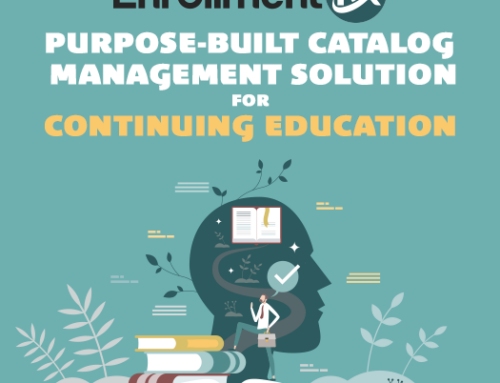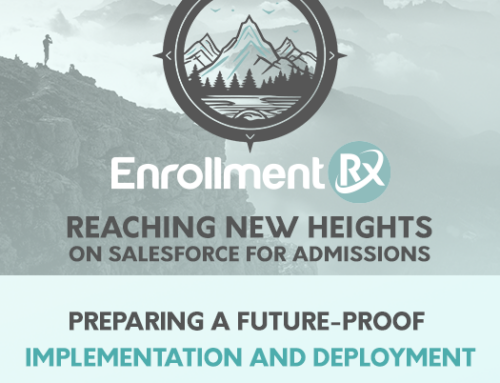When implementing a complex enterprise software system, a true partnership with your technology vendor is paramount. Too often, higher ed institutions get ahead of themselves, jumping into new systems their staff is not ready to accept or that require more business process changes than they’ve prepared for. Addressing these hurdles is the responsibility of both the institution and the vendor, and a project’s success depends on a collaborative relationship.
There’s no better example than CRM. While many schools want to automate relationship management processes across the entire student lifecycle, they may lack the resources or budget to achieve that lofty goal all at once. Instead, CRM should be tackled with a phased approach:
- Ensure executive sponsorship and buy-in across departments – gather all decision makers in the same room and be sure to articulate project timelines, benefits and goals.
- Objectively evaluate business processes – be prepared to look under rugs you’ve been reluctant to lift! Business processes should be painless to adopt and exploit the capabilities of your CRM.
- Set realistic expectations and clearly define success – approach implementation and automation in steps so you don’t overwhelm users.
- Understand requirements – discuss, agree on and document current state and vision. Take “small bites” rather than eat the whole cookie all at once so that each win gains momentum, and momentum creates traction.
- Establish dedicated organization around the project – a successful project manager is part organizer, delegator, strategic thinker, task-master, but above all, always a positive advocate for change.
Change management requires a true partnership between partner and client. By establishing a strong technology and business process evaluation foundation, your CRM will effectively support expansion plans when you’re ready to scale and evolve.
Read more from Enrollment Rx COO Marc Satin about how to avoid implementation roadblocks in Evolllution: Illuminating the Lifelong Learning Movement.




